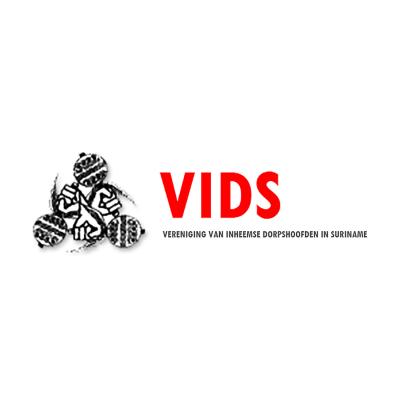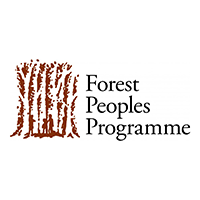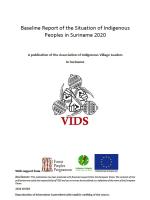Baseline Report of the Situation of Indigenous Peoples in Suriname 2020
Now available in English: This report represents the first time that VIDS has captured and published general basic information on the situation of Indigenous peoples in Suriname within the Indigenous Navigator Framework.
With this initiative, Suriname is among the first 11 countries to present a baseline study of this nature and size, so as to make future monitoring of the implementation of the UN Declaration of the Rights of Indigenous Peoples possible.
All over the world, the human rights of Indigenous peoples are not taken entirely seriously. In spite of many human rights treaties, declarations, judgments, globally accepted development agendas, national development programs and so on, the situation of Indigenous peoples remains worrisome. There are different reasons for this, including the marginalized position of Indigenous peoples in the countries where they live. Policymakers "forget" the Indigenous peoples, who have been historically marginalized by (colonial and current) rulers. Even in (development) statistics, which should highlight disadvantaged and vulnerable groups, Indigenous Peoples are not included; on the contrary, they often disappear under the heading of “other”.
On the basis of this painful realization, a worldwide effort by Indigenous peoples has started in order to influence development agendas such as the Millennium Development Goals (MDGs) and later the Sustainable Development Goals (SDGs). These agendas are based on fulfilling and pursuing human rights, but the Indigenous perspectives are lacking in there as well. To fill his gap the global program “Indigenous Navigator” was launched as a pilot initiative in the period 2014 - 2016. The aim was to help indigenous communities themselves map their human rights and to present their situation. Because of its success, a second phase followed between 2017 and 2020. The Association of Indigenous Traditional Leaders in Suriname (VIDS) has participated since 2014. This report is the result of the Indigenous Navigator study of human rights issues in relation to the SDGs in 14 Indigenous villages of Suriname.
With this, VIDS hopes to make a tangible contribution to the policy of sustainable development of the Indigenous peoples of Suriname. This baseline study uses the development indicators to provide a picture of the current situation of the Indigenous peoples in Suriname, something that has never before been documented. It can thus serve as the first comprehensive monitoring tool to study future trends in the situation of the Indigenous peoples of Suriname. The report is a tool to identify development priorities for Indigenous peoples in respect of national and international goals. With this we can identify critical bottlenecks and strategic interests, and take timely measures to advance the health and prosperity of the Indigenous peoples.
Many individuals and organizations have contributed to this report, not in the least the villages participating in the Indigenous Navigator program, where village surveys were conducted. Much of the data used come from the General Bureau of Statistics, to whom we express our gratitude for a constructive collaboration. We also wish to thank Sheila Ketwaru-Nurmohamed for her significant contribution.
Finally, we would like to point out that we could not have done this work without the support from the organizations involved in the Indigenous Navigator project, namely the United Nations (UN), the European Union (EU), the International Working Group for Indigenous Affairs (IWGIA), the Forest Peoples Program (FPP) and the International Labor Organization (ILO).
Theodoris Jubitana
VIDS Chairman
Loreen Jubitana
Director of the VIDS Bureau

Vereniging Van Inheemse Dorpshoofden In Suriname (VIDS)

